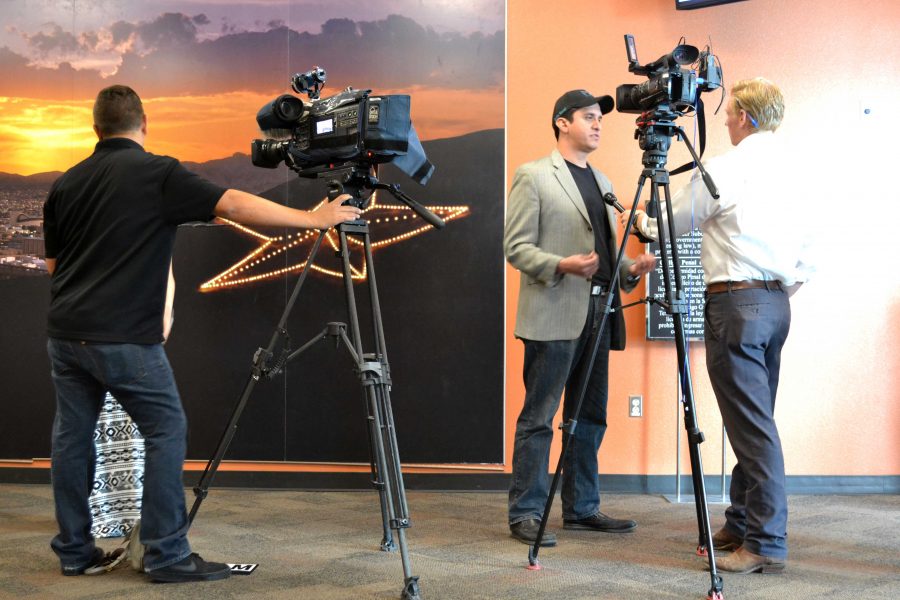On Oct. 4th, more than 30 local filmmakers and film lovers attended a city council meeting to present incentives that promotes film production in El Paso. The main goal is to turn El Paso into an advantageous place where their profession can grow. In the eyes of these filmmakers, El Paso should be a magnet for film production, not a repellent, that forces its homegrown talent to look for better opportunities elsewhere.
The proposal to increase film incentives was originally presented back in May, and City Council set the proposal as a top priority. A couple of months later the proposal was reduced to a support point.
Jesus Nuñez, a local filmmaker and owner of DoubleScope Film Production Company, was one of the organizers that started a Facebook group to recruit people to attend the City Council meeting to reverse this change.
“City council got together and gave other things priority and did not let the public know,” Nuñez said.
The effort was fortuitous. The motion returned to priority status and the odds of it shifting back are small.
“With all the support we showed for the motion, it’s going to be hard for city council to backpedal on it,” Nuñez said.
The incentives refers to the film subsidies that the state of Texas offers, which is a stimulus that refunds or rebates a qualified portion of the money a production company spends in the state. For example, a film production that spends $1 million in qualified spending and shoots in a state with a 25 percent incentive rate, then the production company receives $250,000 back from the state.
According to the Hollywood Reporter, Texas has a 5 percent incentive rate for productions that spend $250,000 to $1 million, 10 percent for $1 million to $3.5 million and a 20 percent incentive rate for productions spending over $3.5 million.
However, these numbers are small compared to Louisiana’s 30 percent incentive across the board with an additional 10 percent added when companies use resident labor. In New Mexico, a 25 percent incentive is given for films, 30 percent for television, with no minimum spending and an extra 5 percent for more than 10 days of filming for all resident crew wages.
While these incentives motivate production companies to shoot in these states, the main drive for state governments to provide these incentives is to boost the local economy. Even if they shoot for a couple of days, money must be spent to feed the entire crew, hotels that need to be rented, permits and police to block off a certain section of a street and extras to run in terror as the aliens land are just a few examples that can potentially boost the local economy.
“We want this city to be a film hub city,” Nuñez said. “So with the support from council, they will have their lobbyist draw up legislature with the help of Destination El Paso and the El Paso Film Commission to not only better the State’s film incentives but also the municipal/city incentives to help smaller productions, from $500,000 to $10 million productions, come to El Paso and spend those dollars here, hiring locals.”
Nuñez explained that what El Paso lacks in economic opportunities it makes up for talent and hard work. Local filmmakers yearn to make this city into something more, not just a Hollywood with mountains. People like Nuñez are not ready to give up because they see the potential of this city.
“I see the film and all other arts being a huge part of this city. I see local business making money off of these productions,” Nuñez said. “I see young people who currently want to be in film but don’t have the support system. Getting that support from now on and being able to follow their dreams means we could have the next Alejandro G. Iñarritu, the next Emmanuel Lubezski in El Paso. But we won’t know if we don’t nurture filmmakers.”
Andres Gallegos may be reached at [email protected].






